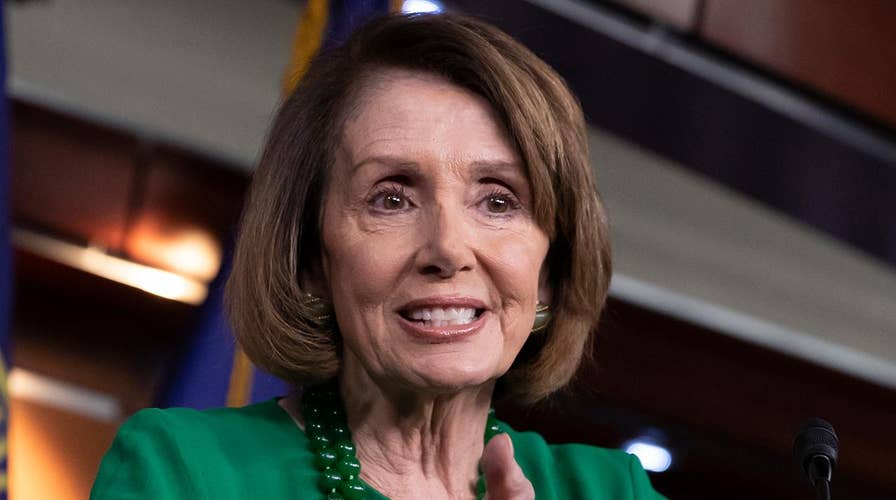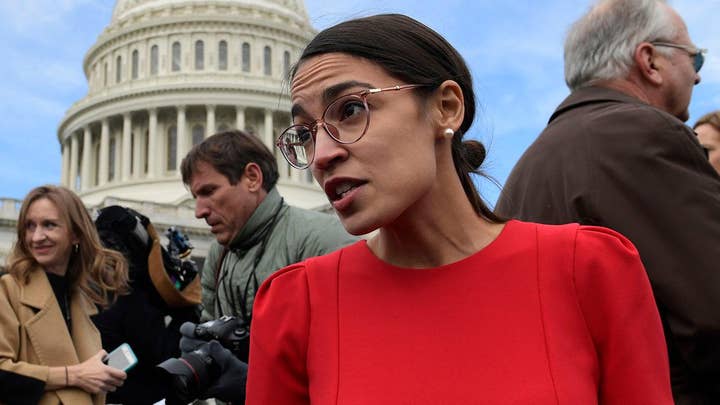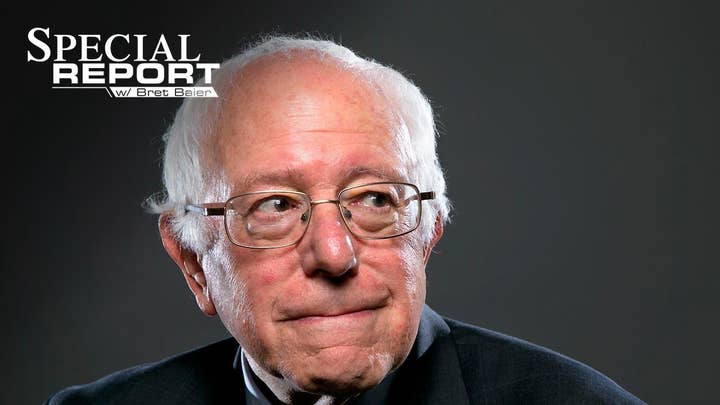Expect to hear the words “free,” “guaranteed” and “for all” a whole lot more in the new year as Democrats prepare an arsenal of big-government bills that could actually see a floor vote once they take control of the House.
Come January, proposals like “Medicare for all” and a host of other generous-but-costly welfare programs that were little more than talking points in recent years could have a shot at passing a chamber of Congress.
“There are dozens of measures like this that have been languishing with Republicans at the helm for years, and I expect to see many of them finally come to the floor under Democratic leadership,” Rep. Bonnie Watson Coleman, D-N.J., told Fox News.
CLICK HERE TO GET THE FOX NEWS APP
With the GOP’s expanded majority in the Senate, it’s unlikely these measures would make it to President Trump’s desk. But their consideration on the House side would mark a first step in formally considering major government expansions – concerning everything from education to health care – that Democrats increasingly favor. And with “Medicare for all” and similar proposals amounting to litmus tests for modern progressives, roll-call votes on any of these issues would reveal just how broad their support is.
At the same time, floor votes putting Democrats on record for multi-trillion-dollar policies could embolden Republicans working to recover from their midterm losses.
House GOP Leader Kevin McCarthy, shortly before the November elections, told Breitbart News Daily that Democrats are moving “toward clear socialism,” and suggested Republicans need to make the case for “unleashing the great powers of liberty and freedom.”
Some of the Democratic Party’s agenda, likely to be spearheaded by Speaker-designate Nancy Pelosi, was spelled out in their “A Better Deal” campaign platform. The set of proposals claims nearly every item could be paid for by rolling back the Trump tax cuts. The most liberal bills have emerged from the Congressional Progressive Caucus.
This, however, does not include “Medicare for all,” which according to one estimate could cost nearly $33 trillion over 10 years.
And “Medicare for all” is just one component of the much broader “Green New Deal” platform being pushed by progressives like Rep.-elect Alexandria Ocasio-Cortez – which also calls for a tuition-free and federally funded education system, guaranteed jobs with an emphasis on “green” jobs, and more.
The Daily Caller reported that more than 40 Democratic lawmakers back the plan – though it’s unclear whether the plan would ever be translated into a bill, let alone come to a vote.
Still, Democratic members, while in the minority, sponsored individual bills calling for “college for all,” “debt-free college,” “child care for all,” and a “jobs guarantee” during the last two years, which could now be voted on along with climate legislation, pro-labor union bills and attempts to roll back the tax reform bill that passed in late 2017.
“The American people picked Democrats in November because they were tired of watching Republicans ignore working families and pass laws lining the pockets of big corporations, millionaires and billionaires,” Watson Coleman said.
Watson Coleman introduced the Federal Jobs Guarantee Development Act in 2018, and said she expects the bill to reach a vote in 2019. Under the bill, the Labor Department would establish job-guarantee test sites in 15 high-unemployment areas across the country. The federal government would match those seeking employment with jobs in understaffed fields.
Watson Coleman argued that the measure would build “economic security for working families and grows our country’s middle class while placing workers in industries with real need.”
There is one area of “A Better Deal” that could see bipartisan cooperation and support from President Trump -- a $1 trillion infrastructure package.
“A Better Deal” also calls for spending $50 billion to increase public school teacher pay, and another $50 billion for school infrastructure.
Rep. Bobby Scott, D-Va., likely the incoming chairman of the Education and Workforce Committee, also introduced a “Worker’s Freedom to Negotiate Act” that bans state laws that allow employees to opt not to join a union and pay union dues. Currently, 28 states have some form of a “right-to-work” law.
The Democratic campaign plan also calls for spending $40 billion on “universal high speed Internet.” A similar bill was promoted by Rep. Cheri Bustos, D-Ill., who pushed to expand Internet into rural areas.
Rep. David Cicilline, D-R.I., has been a leading advocate of the Child Care for Working Families Act, a concept promoted in the party’s campaign plan. The legislation would ensure that no family under 150 percent of a state’s median income pays more than 7 percent of their income for child care. The legislation also would establish a federal-state partnership to provide child care from birth through age 13.
Rep. Ro Khanna, D-Calif., said he anticipates his Job Opportunities for All Act—with 22 Democratic co-sponsors—will make it to the floor in the new Congress.
The legislation, which Khanna, elected the first vice chairman of the Congressional Progressive Caucus, has said fulfills part of President Franklin Roosevelt’s proposed “economic bill of rights,” would provide federal funding to put people to work immediately in both the public and the private sector.
“The Job Opportunities for All Act, H.R. 6485, will help create good paying private sector and public sector job opportunities for people in places left behind,” Khanna told Fox News. “I expect my bill, along with innovative thinking from my colleagues, to be considered as Democrats work to build a jobs agenda.”
Rep. Pramila Jayapal D-Wash., could play a prominent role in such legislative proposals. She is a co-chairwoman of the Medicare For All Caucus, which has nearly 80 members committed to a complete government-run health care system. She was also elected co-chairwoman of the Congressional Progressive Caucus set to have more than 90 members after the election.
Jayapal was also the sponsor of the College for All Act in 2017, which would eliminate tuition and fees at public colleges and universities for families earning up to $125,000, and make community college free for everyone. Sen. Bernie Sanders, I-Vt., introduced the Senate version. Rep. Mark Pocan, D-Wis., the other progressive caucus co-chairman, introduced a similar bill, the Debt-Free College Act, which would provide more federal funding to states to alleviate student loan debt.
Fred Lucas is the White House correspondent for the Daily Signal.















































